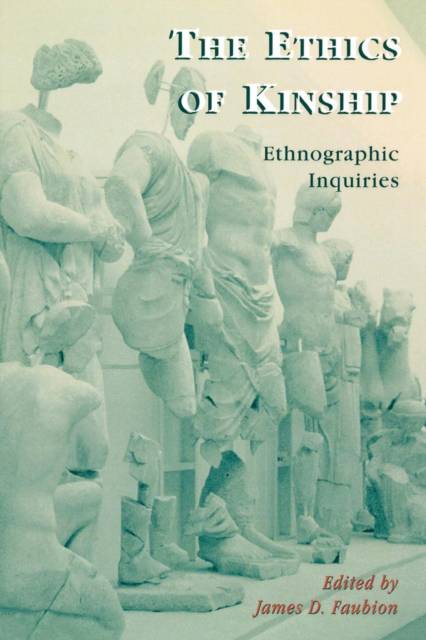
- Afhalen na 1 uur in een winkel met voorraad
- Gratis thuislevering in België vanaf € 30
- Ruim aanbod met 7 miljoen producten
- Afhalen na 1 uur in een winkel met voorraad
- Gratis thuislevering in België vanaf € 30
- Ruim aanbod met 7 miljoen producten
Zoeken
€ 96,45
+ 192 punten
Omschrijving
What need is there for kinship? What good is it anyway? The questions are as old as anthropology itself, but few answers have been enduringly persuasive. Kinship systems can contribute to our enslavement, but more often they permit, channel, and facilitate our relations with others and our further fashioning of ourselves-as kin but also as subjects of other kinds. When they do, they are among the matrices of our lives as ethical beings. Each contributor to this innovative book treats his or her own alterity as the touchstone of the exploration of an ethnographically and historically specific ethics of kinship. Together, the chapters reveal the irreducible complexity of the entanglement of the subject of kinship with the subject of nation, class, ethnicity, gender, desire. The chapters speak eloquently to the sometimes liberating stories that we cannot help but keep telling about our kin and ourselves.
Specificaties
Betrokkenen
- Auteur(s):
- Uitgeverij:
Inhoud
- Aantal bladzijden:
- 288
- Taal:
- Engels
- Reeks:
- Reeksnummer:
- nr. 1
Eigenschappen
- Productcode (EAN):
- 9780742509566
- Verschijningsdatum:
- 14/12/2001
- Uitvoering:
- Paperback
- Formaat:
- Trade paperback (VS)
- Afmetingen:
- 152 mm x 227 mm
- Gewicht:
- 430 g

Alleen bij Standaard Boekhandel
+ 192 punten op je klantenkaart van Standaard Boekhandel
Beoordelingen
We publiceren alleen reviews die voldoen aan de voorwaarden voor reviews. Bekijk onze voorwaarden voor reviews.








